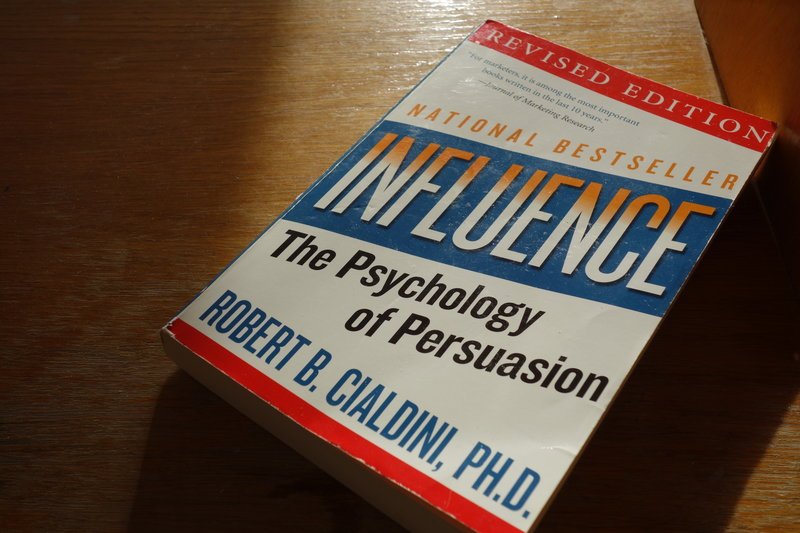In this short article you will discover how to influence and how to be aware of when the 6 principles are being used against you.

When I first started my career as an internet marketer, I've read A LOT of books (and still does). No book had more of an impact than INFLUENCE: The Psychology of Persuasion . Make sure you use this information ethically.
The 6 Key Principles of Influence
Reciprocity
People tend to return a favor, thus the pervasiveness of free samples in marketing. The top marketers in the world use this strategy like there is no tomorrow. They will front load you with so much amazing content that at one point your brain will want to reciprocate by buying. Some will even start thinking: Wow, I've got that much for free, how amazing it's going to be once I pay? Some of those products were great and I benefited tremendously from them...other, not so much.
Commitment and Consistency
If people commit, orally or in writing, to an idea or goal, they are more likely to honor that commitment because of establishing that idea or goal as being congruent with their self-image. Even if the original incentive or motivation is removed after they have already agreed, they will continue to honor the agreement.
See cognitive dissonance.
Social Proof
TripAdvisor reviews are the best example of this. Another example is if all of a sudden everyone around you starts running in a particular direction, your first instinct will be to run with them to avoid a potential danger you may not know about.
Authority
People will tend to obey authority figures, even if they are asked to perform objectionable acts. Cialdini cites incidents such as the Milgram experiments in the early 1960s and the My Lai massacre.
Learn more about the Milgram experiment:

How this can be used positively, is after positioning oneself has a trustworthy and an authority in a specific field, to use this power with extreme caution and to make sure it benefits the person being influenced.
Liking
People are easily persuaded by other people that they like. Cialdini cites the marketing of Tupperware in what might now be called viral marketing. People were more likely to buy if they liked the person selling it to them. Some of the many biases favoring more attractive people are discussed.
Scarcity
Perceived scarcity will generate demand. For example, saying offers are available for a "limited time only" encourages sales. Scarcity is very powerful and Pinterest used it brilliantly when they started their social media platform.
Conclusion
Influence is powerful skill. Just like a blade, it can hurt in the hand of a murderer or can heal in the hand of a surgeon. ALSO, knowing the principles of influence makes you more aware of the strategies being used against you. I still enjoy buying things but I know how to recognize the process of someone bringing me to say YES which helps me make better rational decisions.

